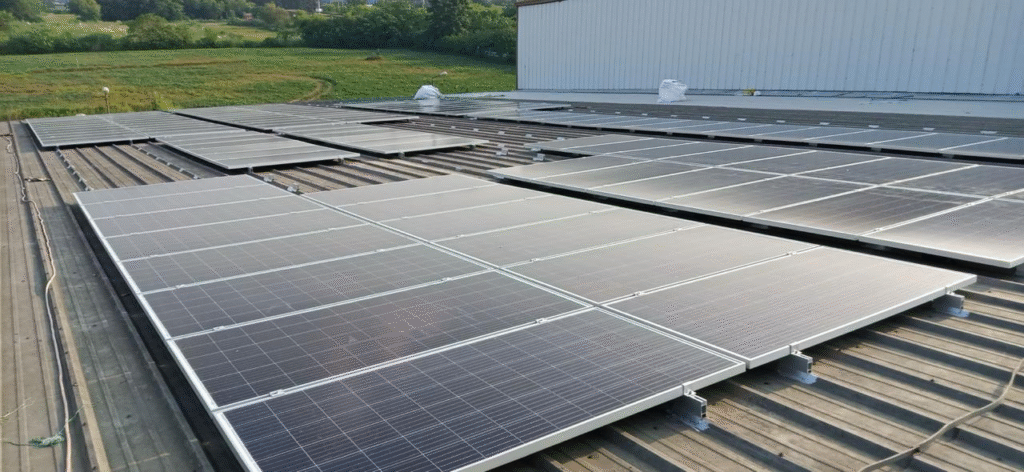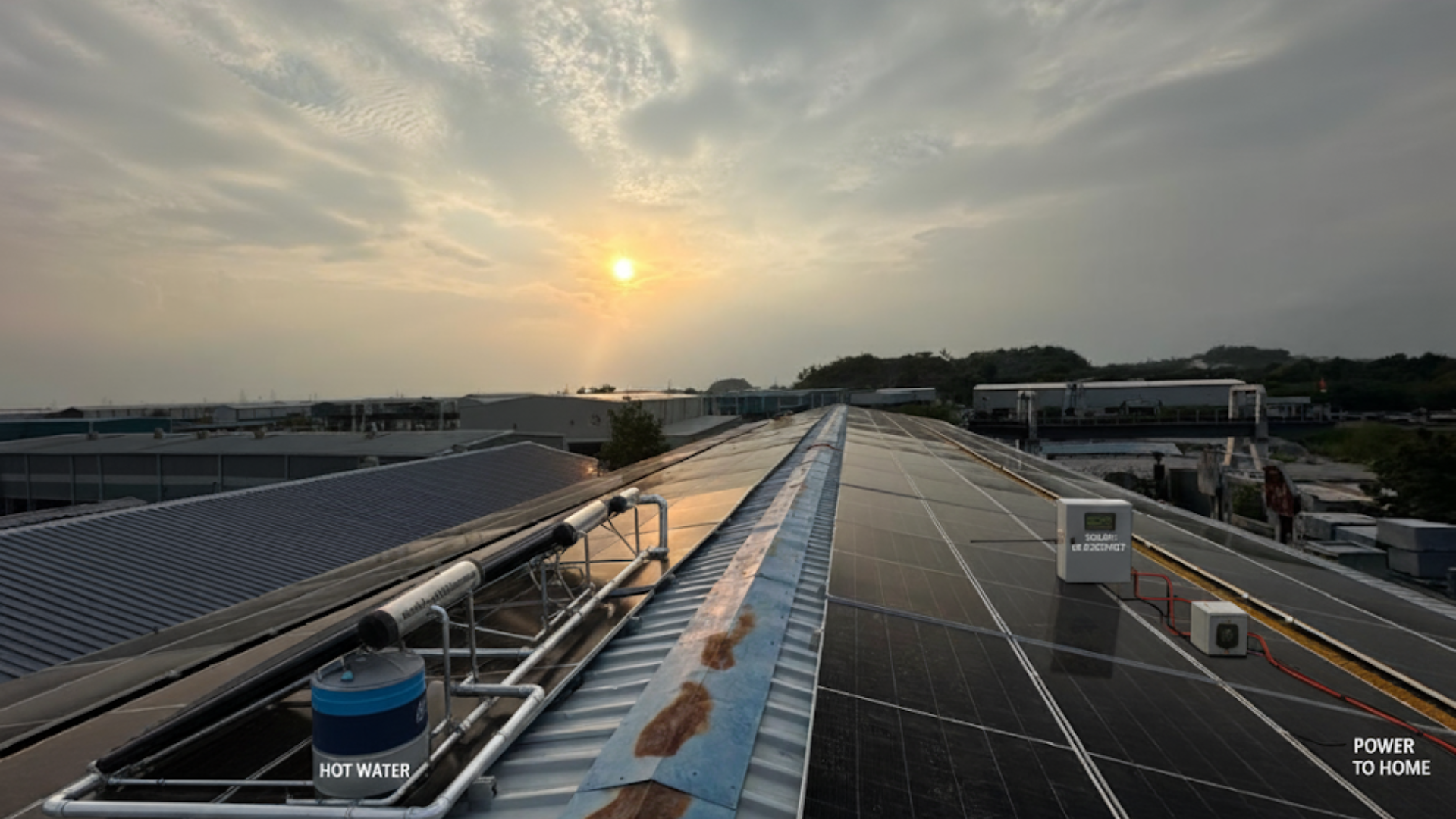When homeowners look to harness the sun’s power, two major technologies come into the picture: Solar Water Heaters (SWH) and Solar Panels (Photovoltaic or PV systems). Both use sunlight to save you money and reduce your carbon footprint, but they function very differently and serve distinct purposes. So, which one is the smarter long-term investment for your home?
Why Solar Panels are the Clear Winner for Residential Energy

If your goal is to drastically cut your overall electricity bill, achieve energy independence, and power your entire home, Solar Panels are the superior choice. They provide a comprehensive energy solution, while Solar Water Heaters are limited to a single application.
The Key Advantages of Installing Solar Panels:
- Unmatched Versatility: They generate electricity that can power every single appliance in your house.
- Complete Hot Water Solution: They easily run your electric geyser or a highly efficient heat pump water heater, taking care of your hot water needs without needing a separate SWH system.
- Highest ROI: By reducing your bill by up to 90%, they offer the fastest payback period and the greatest long-term financial returns.
- Asset Appreciation: Homes with owned solar panels often have a higher resale value.
- Future-Proofing: Easily compatible with battery storage solutions for backup power during outages.
1. Unmatched Versatility: How Solar Panels Power Your Entire Home
The primary function of a solar panel system is to generate electricity. This electricity is incredibly versatile and can be used for every electrical appliance in your house:
- Total Home Power: From your lights, fans, and refrigerator to your air conditioner and washing machine, PV panels can power it all.
- The Hot Water Solution: They can easily run your electric geyser or a highly efficient heat pump water heater. In essence, solar panels can provide hot water plus power the rest of your home, making them a two-in-one solution.
- Solar Water Heaters, on the other hand, are strictly limited to heating water. They don’t generate any electricity, meaning you still have to pay a high bill for all your other appliances.
2. Maximum Savings and Highest ROI
- A properly sized rooftop solar panel system can reduce your monthly electricity bill by 90% or more. This massive reduction across your total energy consumption translates into huge financial savings over the system’s life, quickly offsetting the initial home solar installation cost.
- The Power of Net Metering: With a grid-connected PV system, you can often sell surplus electricity back to the utility grid (through a process like net metering), which can turn your utility bill from an expense into an income source. This long-term earning potential makes the home solar installation cost a worthwhile investment.
- Limited Savings with SWH: While a Solar Water Heater saves you money on the cost of heating water (which accounts for about 15-20% of a home’s energy use), it doesn’t touch the remaining 80% of your bill. The total financial return on a PV system is significantly higher, especially when considering the comprehensive benefits compared to its initial home solar installation cost.
3. Longer Lifespan and Financial Incentives
Modern Solar Panels are built to last and typically come with a 25-year linear performance warranty. They have no moving parts (except perhaps in an advanced tracker system, which is rare for homes) and require very little maintenance—mainly just occasional cleaning. Governments worldwide, including India (e.g., PM Surya Ghar Muft Bijli Yojana), often offer substantial subsidies, tax credits, or rebates specifically for installing solar panel (PV) systems. These incentives drastically lower the upfront cost, making the investment accessible and fast-tracking the payback period.
Solar Water Heaters: Where They Shine

While PV panels offer a more complete solution, Solar Water Heaters still have a niche where they perform well:
- Lower Initial Cost: Generally, installing a Solar Water Heater has a lower upfront cost than a full-scale solar panel system.
- High Thermal Efficiency: SWH systems are highly efficient at converting sunlight directly into heat for water.
- Simpler Technology: The technology is straightforward, which often translates to robust reliability with fewer moving parts.
Quick Comparison: PV vs. SWH
| Feature | Solar Panels (PV System) | Solar Water Heater (SWH) |
| Primary Function | Generates Electricity (AC/DC power) | Generates Heat (to warm water) |
| Power Scope | Powers ALL home appliances | Only heats water |
| Electricity Bill Reduction | Up to 90% (Total Bill) | 50%–80% (Water Heating Portion Only) |
| Government Subsidy | Often Eligible (e.g., PM Surya Ghar Yojana) | Generally Not Eligible |
| Lifespan | 25+ years (High ROI) | 15–20 years (Moderate ROI) |
| Backup Requirement | Battery backup for power outages | Electric/Gas backup for cloudy days |
The Final Verdict: Maximize Your Investment
For the modern homeowner, the question of which is better boils down to a fundamental choice: a limited solution (hot water only) or a comprehensive solution (hot water and everything else).
If your goal is long-term financial security, a massive reduction in your electricity bills, and true energy independence, then installing a high-quality Solar Panel system is unequivocally the better investment.
By choosing solar panels, you not only get the power to run your water heater efficiently during the day, but you also transform your entire home’s energy consumption, securing the highest possible Return on Investment for decades to come.
Frequently Asked Questions (FAQ)
Q1. Can Solar Panels provide hot water?
A. Yes, absolutely! Solar panels generate electricity, which can be used to power a standard electric geyser or a highly efficient heat pump water heater. This is often the preferred and more versatile solution than installing a separate solar water heater.
Q2. Is a Solar Panel system more expensive to install?
A. The initial cost of a full solar panel system is generally higher than an SWH. However, due to its ability to save 90% of your total electricity bill and the availability of government subsidies, the payback period is often much faster, making it a more economical long-term investment.
Q3. Which system requires less maintenance?
A. Solar Panels require very little maintenance as they have no moving parts. Occasional cleaning is usually sufficient. Solar Water Heaters, with their exposed tanks, piping, and fluids (in some closed-loop systems), may require slightly more periodic checks and maintenance.
Q4. Can I install both a Solar Panel system and a Solar Water Heater?
A. Yes, you can. While most experts recommend using solar panels to run an electric geyser for a simpler, integrated setup, installing both is technically possible if your roof space allows. However, it is usually unnecessary and an inefficient use of roof space and capital.


